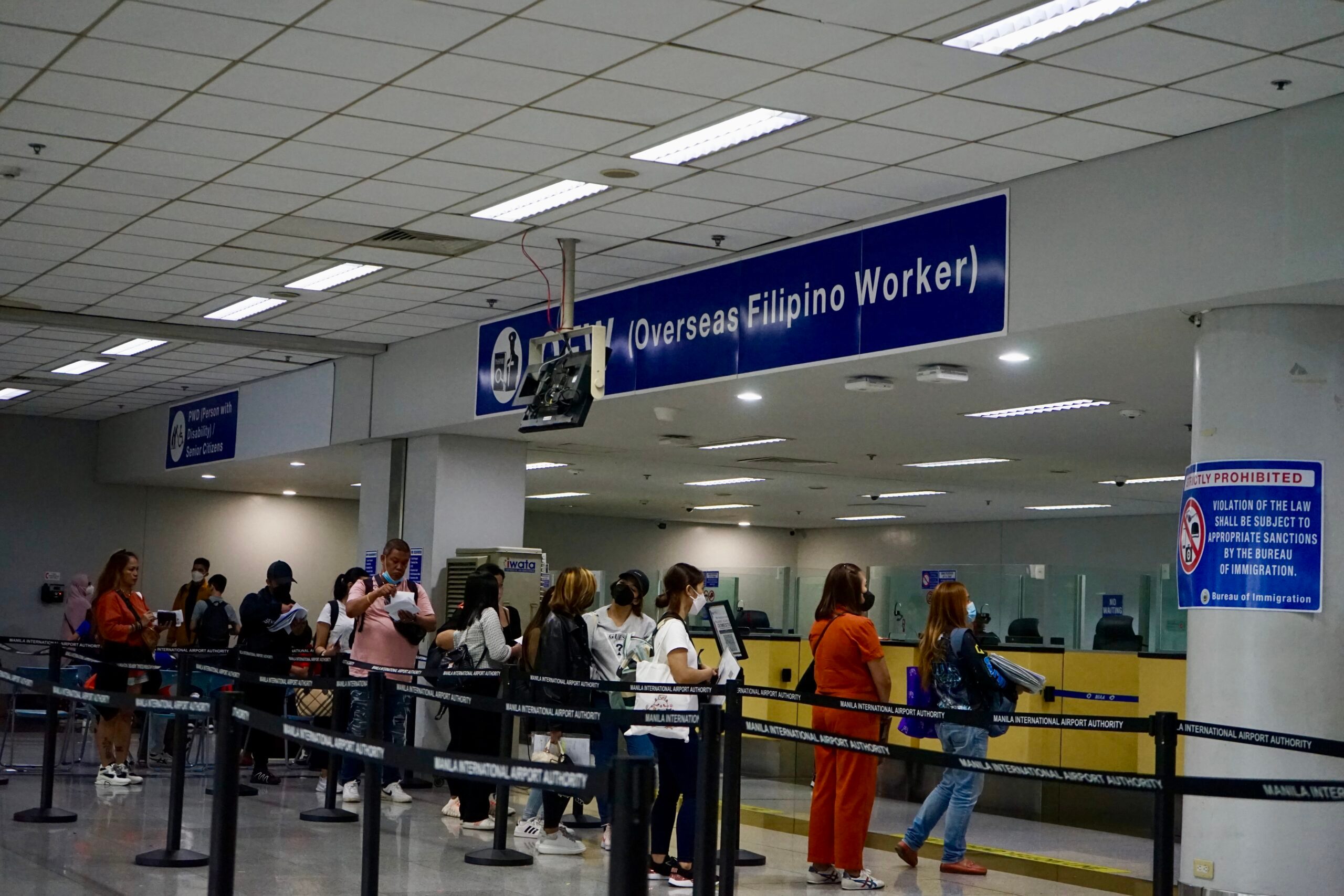SUMMARY
This is AI generated summarization, which may have errors. For context, always refer to the full article.

MANILA, Philippines – In its “simplified” rules regulating recruitment agencies catering to land-based overseas Filipino workers (OFWs), the Department of Migrant Workers (DMW) outlined 20 “mortal sins” that may lead to the suspension of an erring agency’s license.
Migrant Workers Secretary Susan “Toots” Ople said in a media briefing on Friday, June 9, that the new system does away with first, second, and third offenses, and focuses on serious offenses that would heavily penalize agencies that engage in unlawful recruitment.
Some of the “mortal sins” include deploying a minor, charging unauthorized placement fees, placing Filipino workers in jobs “declared as harmful to life, public health, morality, human dignity, or the dignity of the Republic of the Philippines,” and bribing DMW officials.
Ople said that the list of serious offenses was formed in consultation with various stakeholders.


Ople said that the rules were not new, but that they were simplified. Workers and recruitment agencies needed to consult with lawyers on how to interpret the rules’ heavy legalese.
“When I assumed the position, I read the rules for land-based workers… I noticed, I could barely finish reading them because I got sleepy. Second, I could not understand them, so I kept reading them over again. Third, I couldn’t remember anything even when had gone over them multiple times. I realized that’s why recruitment agencies and workers need lawyers because the rules were so complicated,” she said in Filipino.
“We focused on the serious offenses… Because there’s no sensible agency that would commit a serious offense. [For example,] what agency would deploy a minor as a domestic worker?” she added.
Under the new rules, a recruitment agency that commits a serious offense would face cancellation of its license, while less serious offenses may result in suspension of six months to one year. Meanwhile, agencies with light offenses would face suspensions of one to six months.
The department also extended recruitment agencies’ license validity period – from two years to three years for provisional licenses, and from four years to six years for regular licenses.
Recruitment agencies’ escrow deposits have also been increased from P1 million to P1.5 million. The DMW said this would heighten their capability to cover OFWs’ claims for employment contract violations.
One person corporations are also now allowed to engage in overseas recruitment and employment.
The DMW said that the simplification of the rules was a directive from President Ferdinand Marcos Jr. The department said that the new rules sought to better protect OFWs’ rights and enable the recruitment industry to “succeed and flourish.”
At the beginning of 2023 – the department’s first year with a working budget – the DMW set a goal to deploy more OFWs in the year, noting that the Philippines fielded more than 486,000 OFWs from July to November 2022.
– Rappler.com
Add a comment
How does this make you feel?






There are no comments yet. Add your comment to start the conversation.